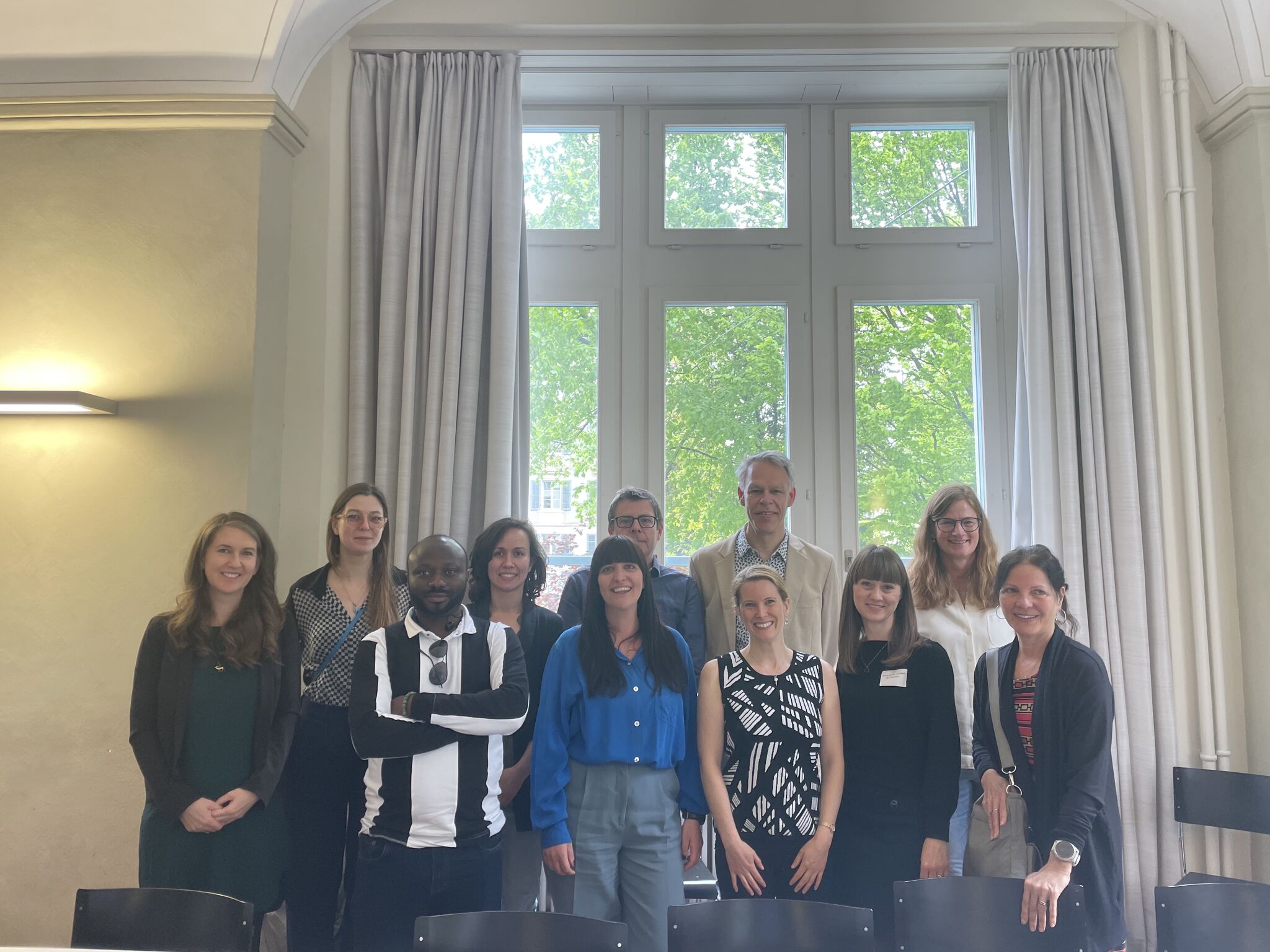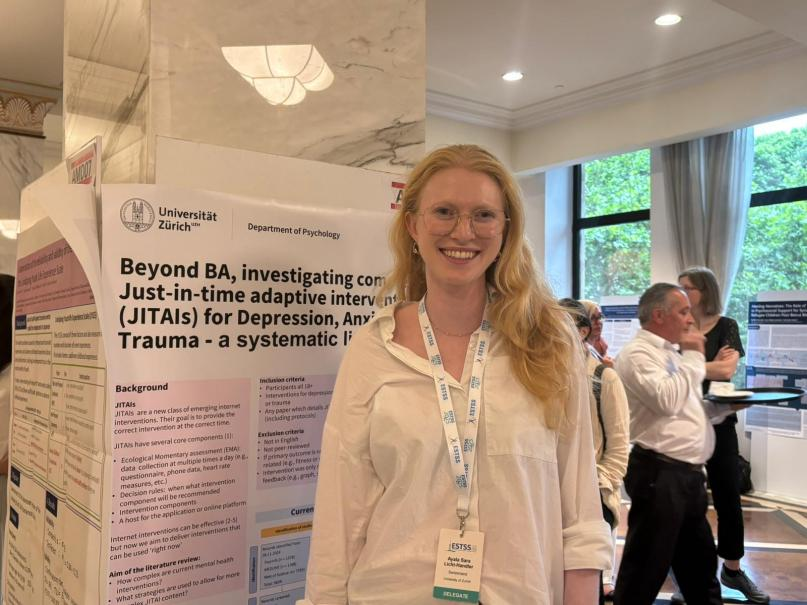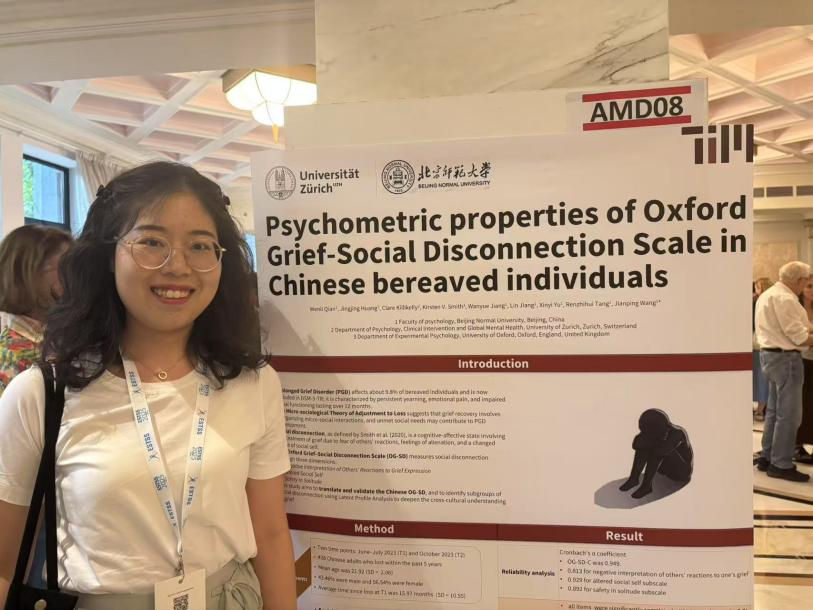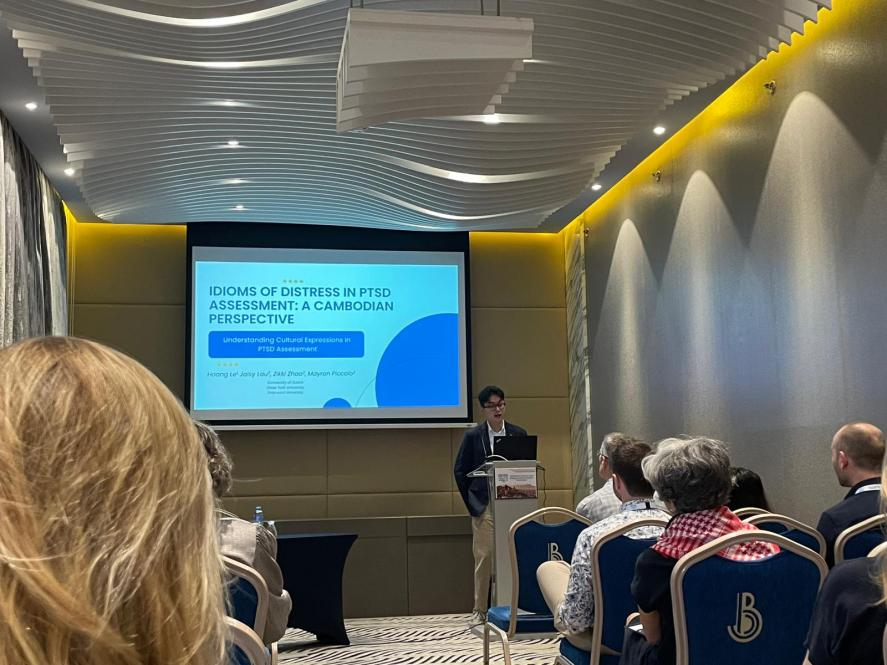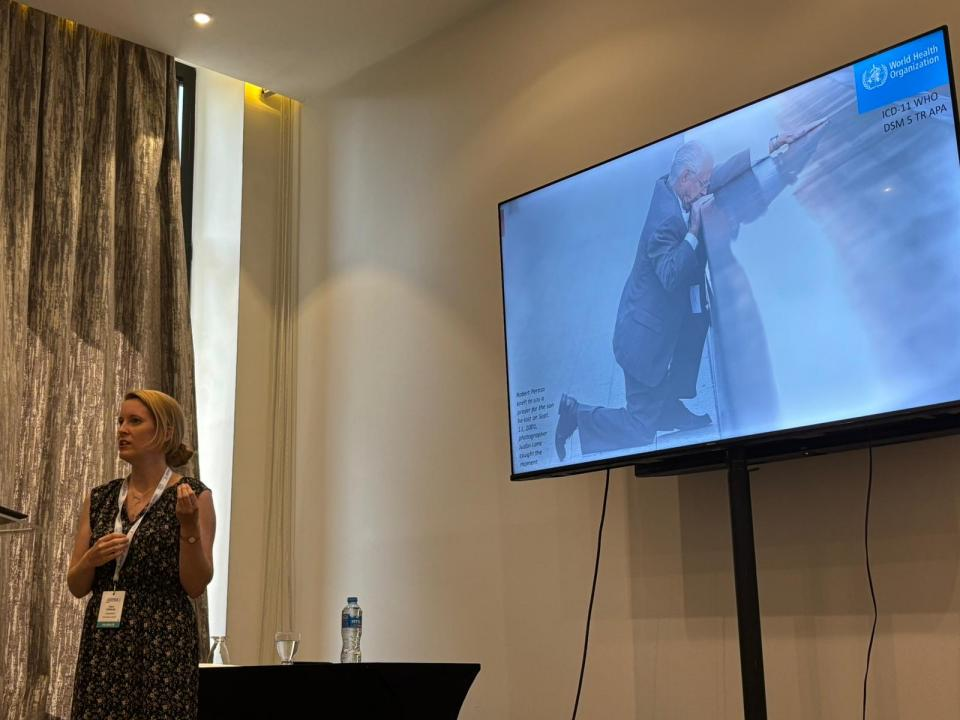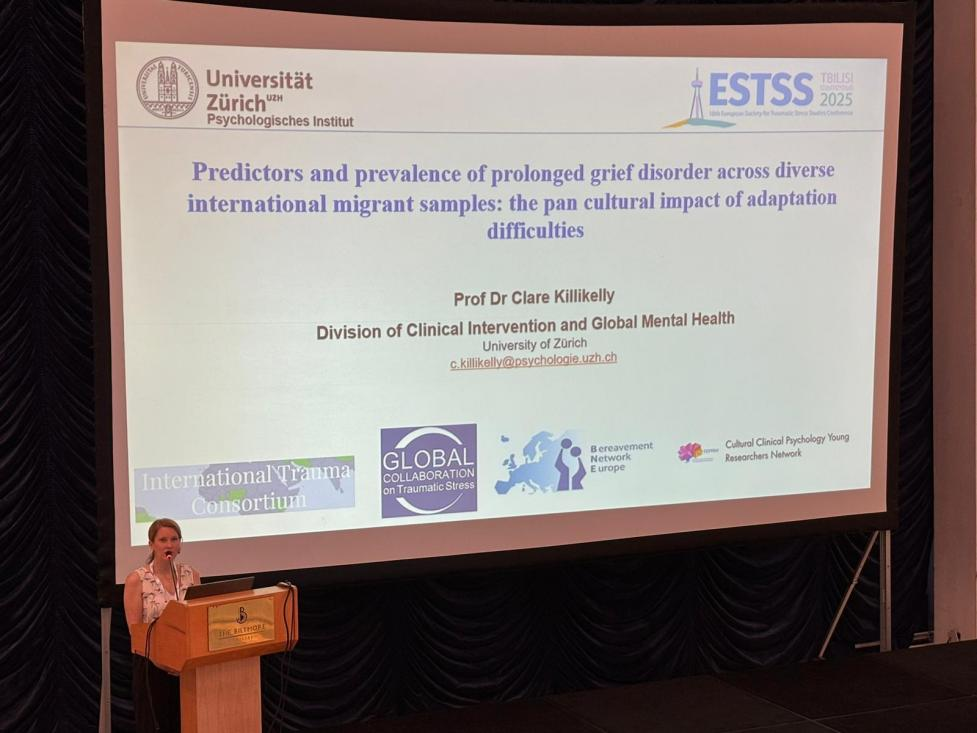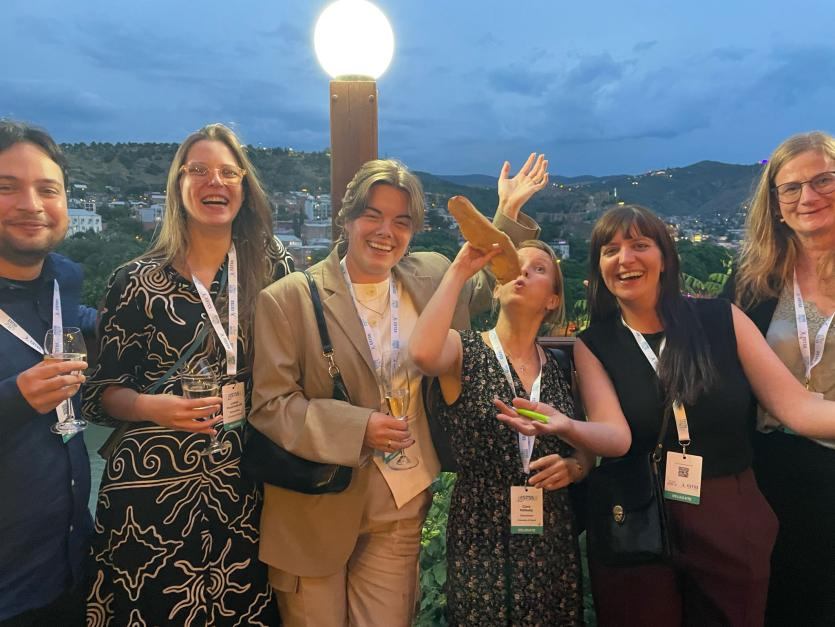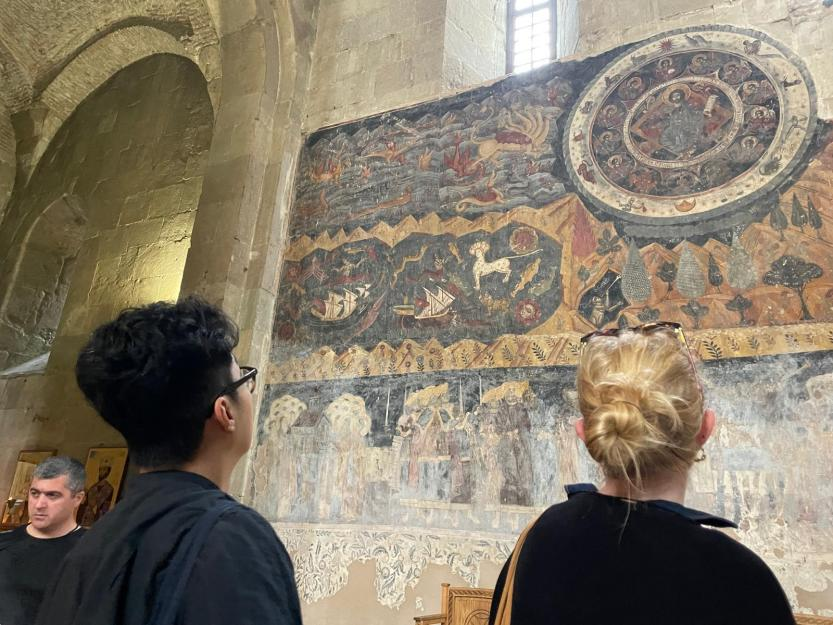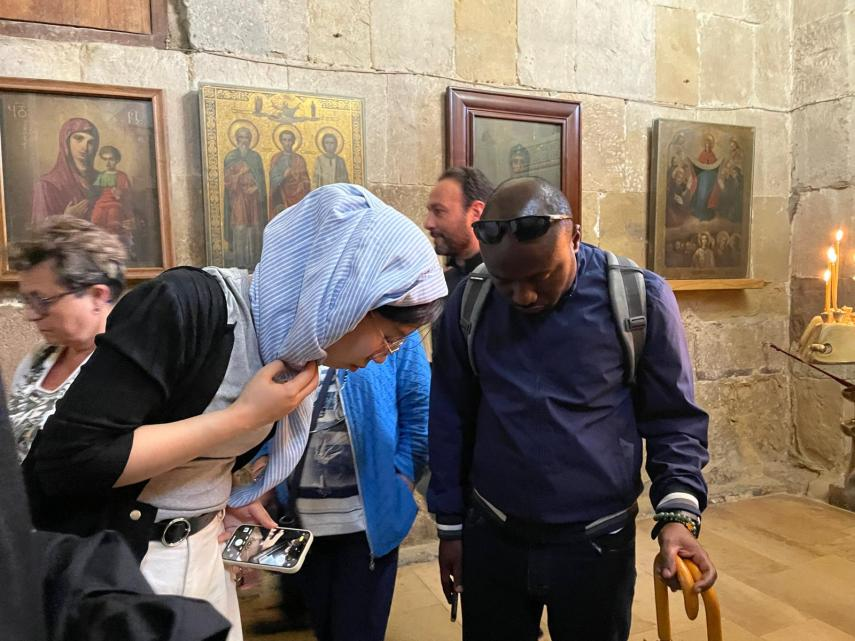Blog
15.10|Guest lecture by Professor Mary Frances O'Connor
We are pleased to announce that Professor Mary Frances O'Connor from the University of Arizona will give a guest lecture titled "The Grieving Brain and Body" on October 15th. Please see the poster for detailed information!
29.09| Inaugural lecture of Prof. Clare. Killikelly
We are delighted to announce that Prof. Clare Killikelly will deliver her Inaugural Lecture next Monday at the University of Zurich. This marks an important milestone in her academic journey, and we look forward to celebrating this occasion together.
Save the date and location!
Date:Monday, 29. Sep,2025,5pm
Location:UZH Centrum Main lecture hall, KOL-G-201,Rämistrasse 71 8006 Zurich
01.09| Our Lab in the Media: Interview on Prolonged Grief Disorder
Following the recent publication of her review on Prolonged Grief Disorder (PGD) in The Lancet, our PI Prof. Clare Killikelly was interviewed by Aargauer Zeitung (June 5, 2025).
In the article, Prof. Killikelly explained the importance of recognizing PGD as a diagnosable mental health condition—highlighting both the benefits of giving a name to patients’ suffering and the challenges of balancing clinical diagnosis with normal human experiences of loss.
This interview illustrates how academic research can reach the public and contribute to broader conversations about grief, mental health, and cultural perspectives on suffering. We are proud to see our lab’s work gaining visibility not only in high-impact scientific journals but also in mainstream media.
Read the original interview (in German): Trauerstörung_ICD11_AZ (PDF, 104 KB)
05.08| Two Days of Dialogue: Grief Experts Workshop in Zurich
By Chenchen Lin
On April 15–16, 2025, our lab had the honor of co-hosting a two-day international workshop entitled "Prolonged Grief Disorder: What’s Next?" at the University of Zurich. The event brought together leading researchers in the field of grief and bereavement from across Europe and beyond, offering a dynamic platform for discussion, collaboration, and future planning.
Day One: PGD: Current status and way forward
The first day focused on small-group working sessions exploring key challenges in prolonged grief disorder (PGD) research, including ESM methods, assessment tools, cultural adaptation, and future grief research. Topics ranged from experience sampling methodology and FAIR data, to future funding directions and bereavement support systems.
Day Two: The Next Generation
The second day was dedicated to student and early-career researcher engagement. A panel discussion brought together junior and senior grief researchers to reflect on future directions, career paths, and building networks in the field. This was followed by a lively poster session and networking lunch, fostering feedback and community building.
We are grateful to all participants for their contributions and look forward to continuing these important conversations. Together, we’re shaping the future of grief research.
28.07| New Lancet Review: Understanding Prolonged Grief Disorder
By Chenchen Lin
We are proud to share that Prof. Clare Killikelly has co-authored a new review article published in The Lancet on prolonged grief disorder (PGD).
PGD is a recently recognized mental health condition characterized by persistent and severe grief symptoms—such as intense yearning, preoccupation with the deceased, emotional pain, and difficulty finding meaning in life. It typically develops 6 to 12 months after the loss of a loved one and is linked to serious outcomes, including poor health, suicidality, and increased healthcare use.
The paper highlights the need for early recognition and intervention, calling on both general healthcare providers and mental health specialists to improve awareness of PGD. Psychotherapy remains the primary treatment, and research into the causes and maintenance of disorder is rapidly evolving.
This important publication aligns closely with our lab’s mission to improve culturally sensitive approaches to grief and mental health care.
Read the full article here:
https://www.sciencedirect.com/science/article/pii/S014067362500354X?dgcid=author
12.06-15.06| Our Lab at ESTSS 2025: Research, Culture, and Connection in Tbilisi, Georgia
By Chenchen Lin
June 12–15, 2025, several members of our lab had the wonderful opportunity to attend the 18th European Society for Traumatic Stress Studies (ESTSS) Conference, held in Tbilisi, Georgia. The conference theme—Exploring New Approaches for Healing and Recovery in Times of Global Uncertainty and Extreme Stress—resonated deeply with our ongoing research on cultural and grief.
This was more than just a conference—it was also a chance for our team to present, connect, reflect, and explore a beautiful new part of the world together.
1.Academic Highlights
We’re proud to share that our lab contributed multiple presentations across various formats:
·Poster Presentations
Ayala Licht-Handler presented "Beyond BA, investigating complexity in Just-in-time adaptive interventions (JITAIs) for Depression, Anxiety and Trauma - a systematic literature review".
Wenli Qian presented "Psychometric properties of the Oxford Grief–Social Disconnection Scale in Chinese bereaved individuals", exploring the cultural adaptation and validation of a grief-related measure.
·Talks
Hoang Le, our research assistant, delivered a flash talk titled "How does integrating idioms of distress affect the diagnosis of PTSD in Cambodia?", focusing on how cultural language shapes mental health assessment.
Prof. Clare Killikelly, our PI, gave two insightful talks:
"Dynamic and precise: feasibility data on longitudinal experience sampling
methodology for grief"
"Predictors and prevalence of prolonged grief disorder across diverse international migrant samples: the pan cultural impact of adaptation difficulties"
Each presentation reflected our lab’s mission to integrate cultural knowledge into mental health research and practice.
2.Exploring Georgia Together
Outside of the conference sessions, we took a short trip together to the historic city of Mtskheta, one of Georgia’s oldest and most culturally significant towns. Walking through its ancient streets and visiting its beautiful churches gave us time to slow down, reflect, and connect beyond academic discussions.
We also had the chance to try some of Georgia’s most iconic dishes—including khinkali, the famous Georgian dumplings. Sharing meals, local stories, and laughter made this trip not only intellectually enriching but also personally meaningful.
In addition, we enjoyed the conference social dinner, where we had the opportunity to relax and connect with many colleagues from around the world in a more informal setting.
We’ve captured some of those moments in the photos below:
3.Reflections and Looking Forward
Attending ESTSS 2025 was a deeply enriching experience—for our research and for our team. We connected with colleagues from across the world, discovered new ideas in trauma research, and felt inspired by the diversity of methods and perspectives shared.
We are grateful for the opportunity to represent our lab and are excited to build on the insights and relationships gained in Tbilisi.
Until next time, ESTSS!
06.06| New publication:The role of idioms in reducing depression in university students: a study on group cognitive behavioral therapy
By Chenchen Lin
Before joining our lab to work on culturally related grief interventions, I spent three years during my Master's exploring the role of cultural elements in cognitive behavioral therapy. That work has just been published in BMC Psychology (June 2025), and I’d like to briefly share what we found.
1.What was the study about?
We conducted a randomized controlled trial with 41 college students with mild to moderate depression. One group received standard CBT, while the other received culturally adapted CBT (CA-CBT)—where we integrated Chinese idioms into the therapy to explain core concepts.
2.What did we find?
Both groups improved overall.
The CA-CBT group had better sleep outcomes at follow-up, suggesting longer-lasting benefits in some areas.
The standard CBT group showed better understanding of CBT concepts immediately after treatment.
Other outcomes, such as emotion regulation and dropout rates, were similar between the groups.
3.Why does this matter?
Although this study was done during my Master's and differs from my current PhD focus, it strongly influenced my current work on grief interventions. Both projects ask: How can culture be a bridge—not a barrier—in mental health treatment?
4.Read the full paper here:
https://bmcpsychology.biomedcentral.com/articles/10.1186/s40359-025-02924-5



